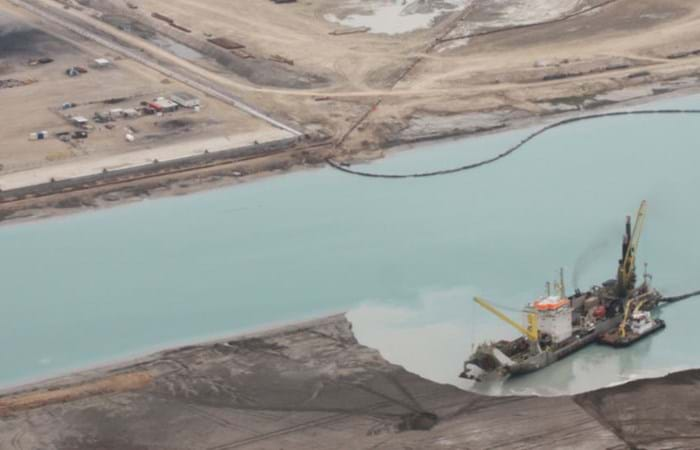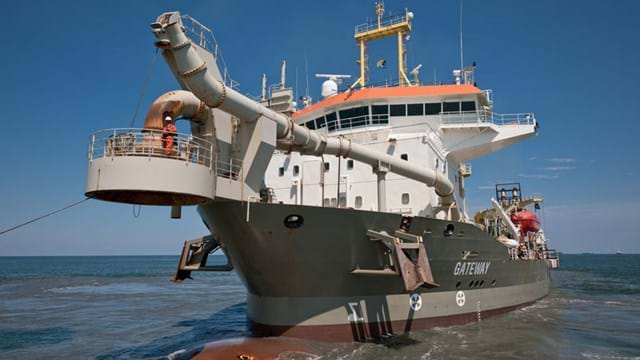The Mexican Ministry of Communications and Transport awarded Royal Boskalis Westminster N.V. two contracts for dredging an access channel and turning basin at the Cuyutlán liquefied natural gas import terminal on the west coast of Mexico.
Scope of work
This first phase of the project required the construction of an access channel and the deepening of a lagoon to create part of a turning basin. Due to two existing bridges it was required that the dredging equipment was mobilized to Cuyutlan on top of pontoons so it could be offloaded onto the shore and transported over land for several hundreds of meters and launched into the lagoon before the dredging operations could commence. This port expansion project was driven by a need to cater to larger vessels and future trade volumes. This Liquefied Natural Gas (LNG) project emphasizes the need for infrastructure to accommodate strong demand for energy resources. The second and final phase of the dredging work required further dredging in the lagoon and at the outer part of the access channel. The work includes the deepening of the basin, the construction of an access channel and the creation of a turning basin. Boskalis has a strong home market position in Mexico and the majority of the Boskalis work was executed by our own local employees.
Design and execution
During the execution of the project the scope of the work shifted continuously. As a consequence access to the site was held up by delays in the work of other parties. The client extended the contract duration and it was therefore still possible to deliver the project on time. Most of the engineering was done by third parties, with Hydronamic (the Boskalis engineering consultancy) playing a supporting role. The most significant changes in the scope of work, such as the clearance of old breakwaters of 175,000 m3, were solved by Hydronamic.

